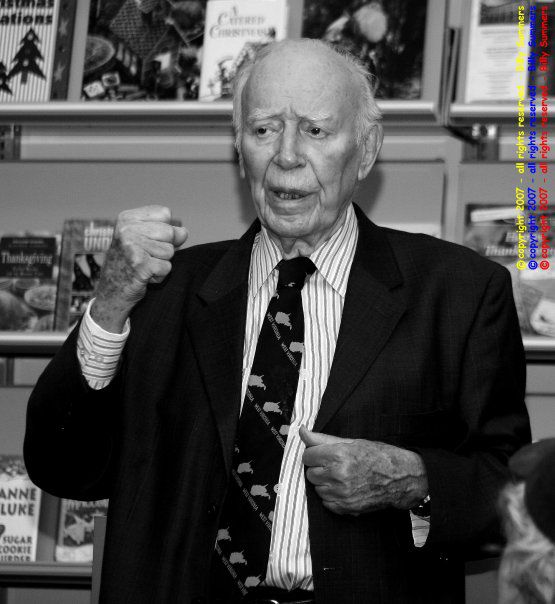
Roslyn native Ken Hechler, a nine-term West Virginia congressman and bestselling historian, died on Saturday night at his home in Romney, W.Va., He was 102.
“He had a good sense of humor until the end,” said John C. Yoder, a friend and former West Virginia state senator.
Democratic U.S. Sen. Joe Manchin issued a statement of condolences on Sunday.
“Ken was a man of his word,” Manchin said. “A fierce advocate for West Virginians who was always willing to help any person in need.”
Born in Roslyn on Sept. 20, 1914, Hechler studied at Swarthmore College before earning a master’s and doctorate in history and government at Columbia University, Yoder said.
In 1942 he joined the Army as a tank officer and soon became a combat historian, returning from the war in 1946 with material for three books, The Washington Post reported.
One of the books, “The Bridge at Remagen,” about the capture of a bridge over the Rhine by U.S. forces in March 1945, that would become a national bestseller and a Hollywood film.
He taught at Princeton after the war but soon tired of it and joined the Truman White House as a researcher, The Washington Post reported.
Hechler moved to Huntington, W. Va., in 1957 after getting a professorship at nearby Marshall University, according to Huntington’s WSAZ news channel 3.
Buoyed by the successful 1957 release of “The Bridge at Remagen,” Hechler ran as a Democratic candidate for the United States House of Representatives in 1959 in West Virginia’s 4th Congressional District, which included Huntington and surrounding towns.
He won the race and went on to serve nine consecutive terms, gaining a reputation as a staunch liberal and distinguishing himself as the only congressman to march with the Rev. Martin Luther King Jr. in Selma, Alabama, a Swarthmore alumni publication said.
After a close but unsuccessful 1976 gubernatorial bid, Hechler eventually turned his sights to West Virginia’s secretary of state post, in which he served from 1985 to 2001.
Yoder, a Republican colleague of Hechler’s during his tenure as secretary of state, said Hechler approached that job with concern less for party loyalty than for fair elections.
“It wasn’t necessarily whether he agreed with somebody or not,” Yoder said. “But if he had the right process for someone to express their views or participate, then he would have the right outcome.”
Hechler remained active in his latter years, holding regular parties with up to 100 guests, Yoder said.
“He would get up and talk and visit with people, and tell stories about the Truman administration or World War II.”
Earlier this year, at age 101, Hechler asked Yoder to officiate at a renewal of Hechler’s wedding vows. The ceremony took place in August.
Ken Hechler and his wife, Carol, were “lifetime companions and friends,” Yoder said.
Yoder said he visited Hechler’s home last Saturday and could see Hechler “was not feeling well.”
“His wife asked him, ‘Do you want me to cancel dinner because you’re not doing well?’” Yoder said.
“’[Hechler] said, ‘The dinner must go on.’”






